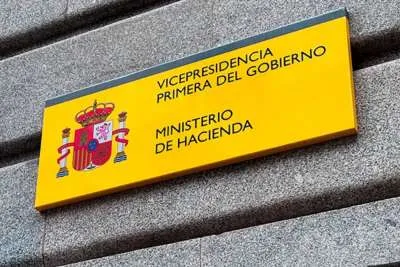How UK Online Casino Rules apply in the Canary Islands
- 05-11-2025
- Business
- Canarian Weekly
- Photo Credit: Freepik
When British tourists pack for a week in Tenerife or Lanzarote, they’re usually thinking about sun cream and sandals, not gambling legislation. The majority of Brits keep playing at online casinos in the UK and do not continue that activity abroad.
Yet thousands of holidaymakers try to log into their UK online casino accounts from these islands every summer. Some succeed without issue, others are blocked at the login screen. The confusion stems from how UK gambling laws travel, or rather, how they don’t, once you step off British soil.
The split between UK and Spanish authorities
The Canary Islands, while geographically off the coast of Africa, are under Spanish jurisdiction. That means Spanish gambling law applies to anyone physically located there, regardless of nationality. So even though a UK licence covers British residents at home, it has no power in Spain. Online casinos licensed by the UK Gambling Commission (UKGC) can serve customers based in the United Kingdom. The moment a player’s device connects from a Spanish IP address, things get complicated.
Spanish law requires all operators offering services to players inside the country to hold a licence from the Dirección General de Ordenación del Juego (DGOJ). The rule includes visitors. If a UK site doesn’t have that Spanish licence, technically it shouldn’t accept bets from someone in Tenerife or Gran Canaria. Some companies comply strictly with that rule. Others operate in a grey zone, allowing temporary access without fully promoting it.
Geolocation and real-time blocking
Most gambling websites use geolocation tools to determine where a player is logging in from. The system isn’t foolproof, but it works well enough to enforce local restrictions. When a player tries to place a bet from a Spanish IP, the platform might freeze the account, limit deposits, or show a notice saying play is unavailable in that region. These restrictions aren’t personal; they’re automated compliance measures.
Some players use VPNs to hide their location, though doing so can breach site terms and lead to suspended accounts. A few users report that their casinos allow them to view their balance but not to spin or wager. Others can play but cannot withdraw until they’re back in the UK. It varies widely because every operator interprets cross-border activity differently.
The legal grey zone for holiday gamblers
Lawyers who specialise in gambling regulations often describe this area as “unenforced but risky.” A British tourist placing a small wager online while in Spain isn’t likely to face prosecution. Still, the operator could face penalties if Spanish authorities view it as an unlicensed service. The risk, therefore, tends to fall on the company, which is why most major brands err on the side of caution.
For the player, the practical issues are usually more immediate. Payment verification systems may flag a mismatch between the billing address and the device location. Some e-wallets and banks freeze gambling transactions when detected abroad. That can delay withdrawals for days. Even bonus eligibility can change, as offers tied to the UK market don’t always extend overseas.
How residency and taxation come into play
Residency status can influence which rules apply. A British expatriate living full-time in the Canaries is legally a Spanish resident, meaning they must use operators licensed in Spain. Tourists, on the other hand, remain UK residents but are still physically subject to Spanish law while there. The overlap is messy.
In terms of taxation, winnings earned from gambling are not taxed in the UK for players, but Spain taxes gambling income. For short-term visitors, enforcement is practically nonexistent, yet technically the rule exists. The line between casual holiday play and taxable income is blurry and rarely tested in court.
What holidaymakers can actually do
For most travellers, the safest option is to use casinos that are licensed both in the UK and the EU, which includes Spain. Some operators hold dual licences, allowing uninterrupted service in both markets. Checking the terms before travelling can prevent headaches later. Players can also contact customer support and ask directly whether access from Spanish territory is permitted.
Those who don’t want to risk a blocked account can try Spanish-licensed casinos while in the Canaries. Many offer English-language versions of their sites and accept common payment methods used by tourists. The interface might look slightly different, but the rules for responsible gambling and age verification are similar.
The takeaway for British players abroad
British gambling rules stay at home when you don’t. The Canary Islands may feel like an extension of Britain during the summer rush, yet the betting laws are undeniably Spanish. Most visitors will never encounter a problem, but it’s easy to see why confusion persists. Online gambling doesn’t stop at borders, even when the law does.
Other articles that may interest you...
Trending
Most Read Articles
Featured Videos
TributoFest: Michael Buble promo 14.02.2026
- 30-01-2026
TEAs 2025 Highlights
- 17-11-2025





























































